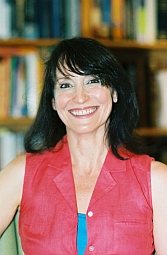

This article title comes from a poster shared on a social site; the words are a timeless truth. Maybe it’s time to put them into practice by deepening our understanding of what they mean for us individually AND globally.
When I’d initially decided what I wanted to write about this week, I’d planned to include a paragraph from Lynne Twist’s book, The Soul of Money, because of its relevance to the scarcity mindset so many around the world practice in daily life. Then the Boston Marathon event happened on April 15, which inspired me to alter my intended topic. Twist’s words I wanted to share took on even greater importance, took on meaning of an even greater scope, which I believe you’ll understand when you read them.
Here is the paragraph: We think we live in the world. We think we live in a set of circumstances, but we don’t. We live in our conversation about the world and our conversation about the circumstances. When we’re in a conversation about fear and terror, about revenge and anger and retribution, jealously and envy and comparison, then that is the world we inhabit. If we’re in a conversation about possibility, a conversation about gratitude and appreciation for the things in front of us, then that’s the world we inhabit. I used to think that the words we say simply represent our inner thoughts expressed. Experience has taught me that it is also true that words we say create our thoughts and our experience, and even our world. The conversation we have with ourselves and with others—the thoughts that grip our attention—has enormous power over how we feel, what we experience, and how we see the world in that moment.
Soon after news about the Boston Marathon was released, I read many conversations about this event on social sites and in personal e-mails. Understandably, some asked or commented about the kind of world we live in. I’m in agreement with Lynne Twist that we live in a world created by our conversations, public and private. The world, which includes you and me, needs healing – because we need healing. And we can engage this process by first healing our own conversations. The words being spoken by each of us are, indeed, influencing the world house we live in, beginning with ourselves.
The thoughts, feelings, and beliefs we start with—our conversations—are what our experiences and results will be. As I thought about this, I imagined a GPS unit that was designed to follow and match our thoughts, which, if you think about it, is what happens with our self-conditioning that leads to “self-fulfilling prophecies,” and the Law of Attraction that matches experiences to our emotion-based feelings, without discretion. We program ourselves and our experiences akin to how we program GPS units, through our conversations with ourselves and others; yet, we are sometimes or often surprised about the destination we arrive at.
We can tell ourselves anything about anyone or any thing or matter; it really is our choice. But our stories are more often than not limited in perspective, because they are based on our perspective. This begs the question: What does anyone tell themselves in order to convince them or others to do something that harms others without regard, whether that’s at the severity level of 9/11 or the Boston Marathon (or some of the other events that are even more severe or ongoing), or cause relied-on pensions to deplete or disappear, commit crimes against or mistreat individuals, or any number of actions that never serve and honor the good of humanity or individuals (both those who do such acts and those who such acts are done to)? Any such actions always begin, always are seeded, as conversations with the self first then with others, if others are to be involved.
We can easily condemn those who commit such acts as with the marathon and any other events that span our individual and shared histories, but we are also called upon to examine our own behaviors in our personal and other relationships. Are they what they could be? Are our conversations with those we share our personal, professional, community, or spiritual life with what they could be? If not, we can or must begin there. We can look at those conversations and see what we can do to improve them.
Granted, there may be some, in our personal lives especially, who, without their collaboration, we cannot co-create a better relationship, but we can choose the conversations we have about that, as well. Not always easy, because it’s so tempting to appease the ego-aspect that wants to feel justified in carrying negativity (and acting on it), but it is doable. If we can’t collaborate, we can, at least, endeavor to find ways to cooperate or co-exist, as much as possible. And, yes, I’m well aware of the challenges inherent in this suggestion. The challenges present us with opportunities. There is a lot to do, or often is; but as with any worthy goal, dream, or improvement, you have to start where you are and keep going.
A friend included this line in an e-mail to me: “Keep your path filled with Light.” I responded that my path will be filled with Light if I am filled with Light, that I am the light-bringer in my life. I am the one who illuminates my path (or casts shadows upon it); and that, of course, this gets into my relationship with Source and with my self. This is also a conversation that each of us might consider having with ourselves.
One way we as individuals, and all the way up to global leaders, can begin to improve our conversations with ourselves and others, is to ask better or right questions. Randy Pausch said, “The questions are always more important than the answers.” He makes a strong point, when you consider what this really means: It means examining situations and considering solutions with different “eyes”, with more conscious awareness, especially about how all life is interconnected and interdependent.
Kurt Wright, in his book Breaking the Rules: Removing the Obstacles to Effortless High Performance, offers many sets of questions throughout the book. But here are five questions that open right dialogues and stimulate productive conversations for improvements that serve need, not greed – or hate.
- What’s right? Or What’s working?
- What makes it right? Or Why does it work?
- What would be ideally right? Or What would work ideally?
- What’s not yet quite right?
- What resources can I find to make it right?
Many people are engaging in the wrong kinds of conversations with themselves and others. I venture to say that each of us do this when our ego-aspect is driving the bus rather than our TRUE spirit-aspect that comes from conscious awareness, not dogma of any kind. All we have to do is look around us to see this is true with our own lives and relationships, the economy, education, the environment, etc.
Different, that is, better, conversations are needed. We need solutions, yes, but too often we rush ahead without exploring right questions, which would lead to right solutions rather than just expedient ones that may or may not create better short- and long-term results for all or the majority involved. Perhaps we could borrow a phrase segment from the Hippocratic Oath to use as a foundation that supports any conversation we engage in, and what comes of it: do no harm or injustice.
We can choose words of hate, anger, revenge, arrogance, fear, scarcity, oppression, unkindness, and so on. We can choose words of love, appreciation, compassion, spiritual trust, abundance, kindness, and so on. We can choose to practice improving our conversational skills in ways that open true dialogues and connection and collaboration or cooperation. This has to start with each of us, with the conversations we have with ourselves then with others, to eventually make a difference on a larger scale. It’s a good practice, one you’ll appreciate.
Practice makes progress.
© Joyce Shafer
You are welcome to use this article in your newsletter or on your blog/website as long as you use my complete bio with it.
=================================================================
Joyce Shafer is a Life Empowerment Coach dedicated to helping people feel, be, and live their true inner power. She’s author of “I Don’t Want to be Your Guru, But I Have Something to Say” and other books/ebooks, and publishes a free weekly online newsletter that offers empowering articles and free downloads. See all that’s offered by Joyce and on her site at http://stateofappreciation.weebly.com

Leave a Reply